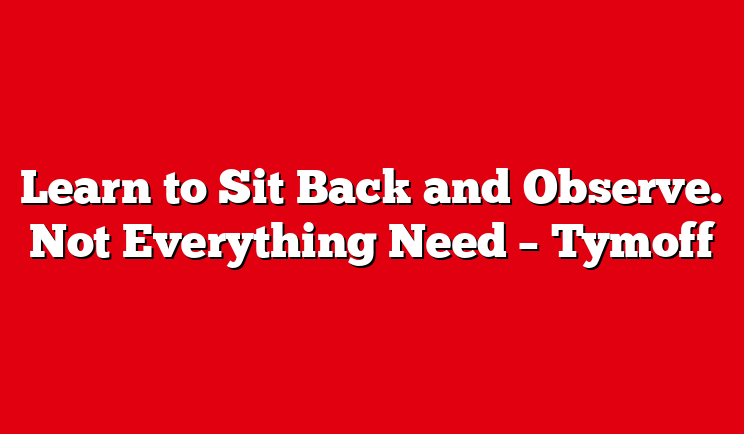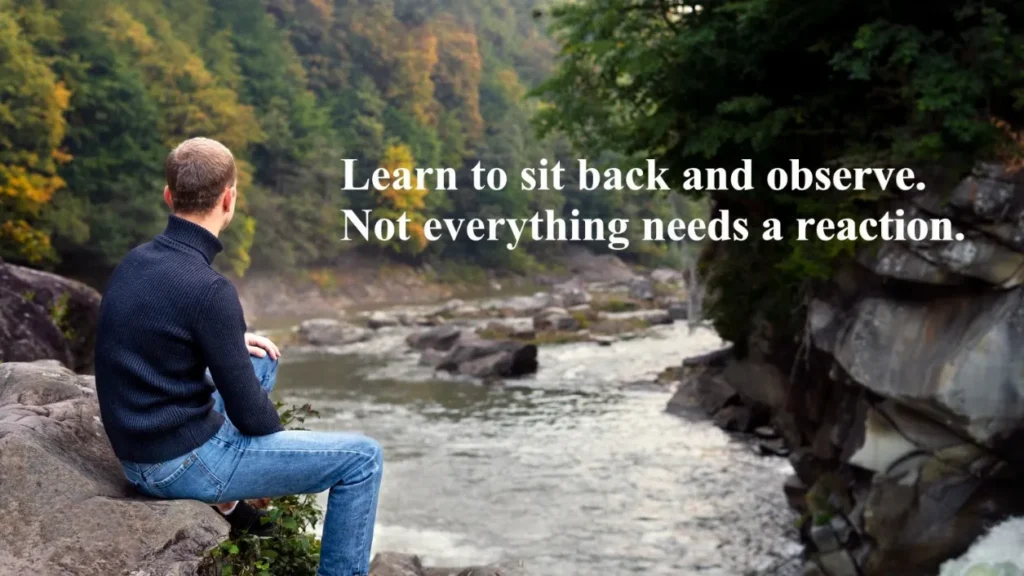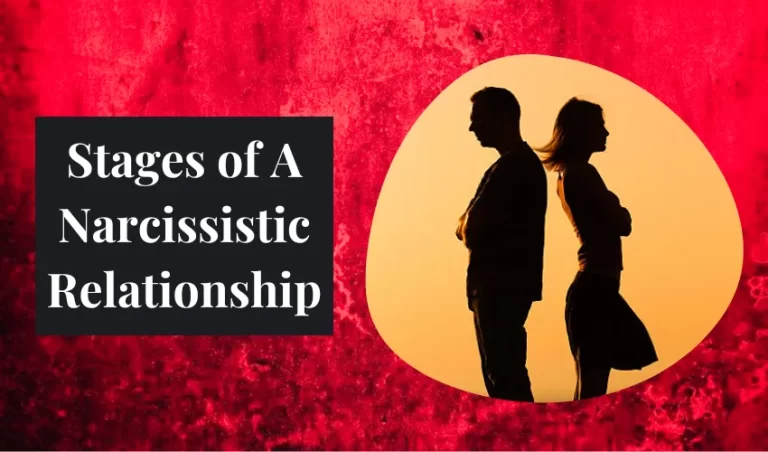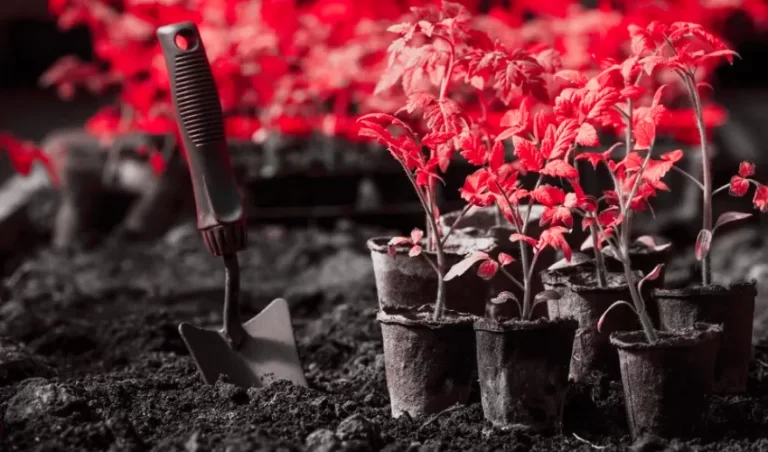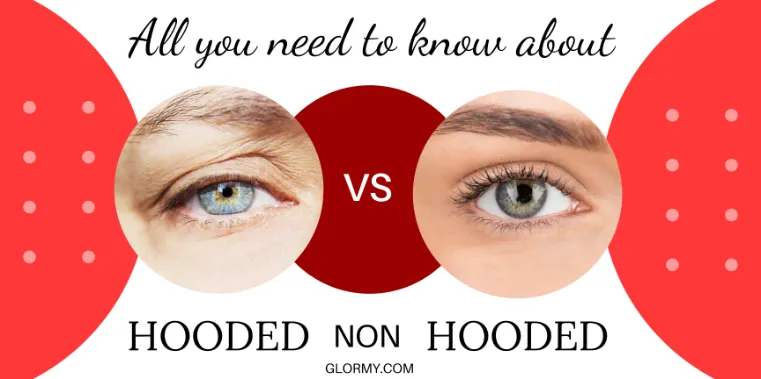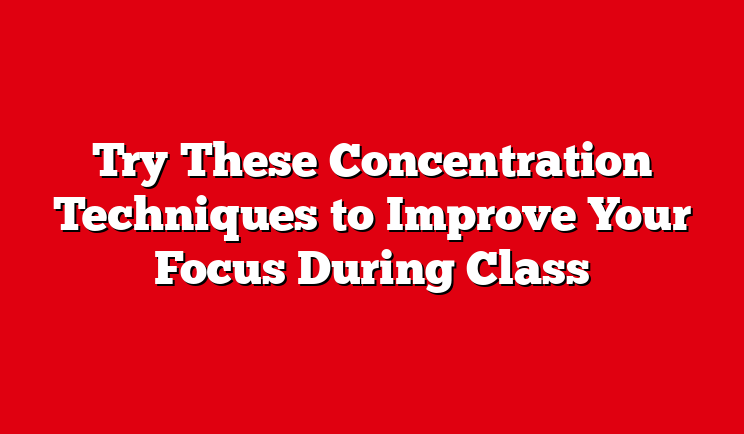Learn to Sit Back and Observe. Not Everything Need – Tymoff
Tymoff’s quote, “Learn to sit back and observe. Not everything needs a reaction,” serves as a powerful reminder to adopt a more mindful approach to life. This article delves into the significance of observation, exploring how shifting from reactive to reflective behavior can enhance our perspective, emotional intelligence, and personal growth. By embracing the art of non-reaction, we can lead more balanced and fulfilling lives, improving our interactions and decision-making processes.
Table of Contents
Key Takeaways:
- Mindful Observation: Tymoff’s quote encourages shifting from immediate reactions to mindful observation, enhancing perspective and emotional intelligence.
- Gaining Perspective: Stepping back allows us to view situations more broadly, leading to informed and balanced decisions, better emotional control, and deeper personal growth.
- Daily Benefits: Observational practices improve communication, enhance problem-solving, and reduce stress by fostering mindful and thoughtful interactions.
- Art of Non-Reaction: Discernment helps us identify when to act and when to observe, conserving energy and focusing on meaningful actions for a more balanced life.
The Power of Stepping Back:
Tymoff’s quote, “Learn to sit back and observe. Not everything needs a reaction,” invites us to challenge our instinctive urge to react immediately to stimuli. Instead, it encourages us to cultivate a habit of observation. This shift from reactive to reflective behavior can be profoundly beneficial in multiple ways:
Gaining Perspective:
When we step back from a situation, we create space to view it from various angles. This broader perspective helps us understand the context and dynamics at play, leading to more informed and balanced decisions. For example, in a heated discussion, pausing to observe can reveal underlying issues or emotions that might not be apparent at first glance. This comprehensive understanding can prevent misunderstandings and promote more effective problem-solving.
Emotional Awareness:
By observing our emotional responses rather than immediately acting on them, we gain better control over our reactions. This self-awareness allows us to process our emotions fully and choose responses that are more measured and appropriate. For instance, when faced with criticism, taking a moment to observe our feelings of defensiveness can help us respond calmly and constructively rather than reacting with anger. This practice can lead to more harmonious and productive interactions.
Deeper Learning:
Approaching the world with a curious and observant mindset can lead to unexpected insights and personal growth. By observing without the need to react, we open ourselves to new experiences and knowledge. For example, watching a complex social interaction without intervening can teach us about human behavior and social dynamics. This deeper understanding can enrich our lives and enhance our ability to navigate various situations effectively.
In essence, the power of stepping back lies in the ability to transform our approach to life from one of immediate reaction to one of thoughtful observation. This shift can enhance our perspective, emotional intelligence, and capacity for learning, ultimately leading to a more mindful and fulfilling existence.
Benefits of Observation in Daily Life:
Integrating the practice of observation into our daily routines can have transformative effects on various aspects of our lives. This mindful approach offers numerous benefits that enhance our overall well-being and effectiveness in both personal and professional spheres:
Improved Communication:
Effective communication goes beyond just words; it involves paying attention to nonverbal cues such as body language, facial expressions, and tone of voice. By observing these subtle signals, we can better understand the emotions and intentions behind someone’s words. This heightened awareness fosters deeper and more meaningful conversations as we respond not only to what is being said but also to how it is being conveyed. For example, noticing a friend’s hesitation or discomfort during a discussion can prompt us to address their concerns more empathetically, leading to more supportive and connected interactions.
Enhanced Problem-Solving:
When we approach problems with an observational mindset, we can assess situations more objectively. This detachment allows us to identify underlying causes rather than just addressing symptoms. By taking a step back and observing all aspects of a problem, we can develop more comprehensive and effective solutions. For instance, in a workplace conflict, observing the dynamics and interactions among team members can reveal deeper issues, such as miscommunication or conflicting priorities. Addressing these root causes can lead to more sustainable resolutions and a more harmonious work environment.
Reduced Stress:
Reacting impulsively to stressful situations often exacerbates our stress levels and emotional turmoil. By cultivating a habit of observation, we can approach challenges with a calm and composed mindset. This shift from immediate reaction to thoughtful observation helps us manage stress more effectively. For example, when faced with a tight deadline, instead of panicking, taking a moment to observe the situation and plan our actions can help us stay focused and organized. This calmer approach not only reduces stress but also enhances our ability to perform under pressure, leading to improved emotional well-being and overall productivity.
In summary, the practice of observation enriches our daily lives by improving communication, enhancing problem-solving skills, and reducing stress. By adopting an observational approach, we become more attuned to our surroundings and interactions, allowing us to navigate life with greater clarity, empathy, and resilience. This mindful way of living ultimately fosters a more balanced and fulfilling existence.
Cultivating the Observer Within:
Incorporating Tymoff’s philosophy of mindful observation into your daily routine can lead to significant improvements in your mental clarity, emotional balance, and overall well-being. Here are some practical tips to help you develop and nurture the habit of being an observer:
Mindful Moments:
Carving out short, mindful breaks throughout your day can help you centre yourself and reconnect with the present moment. During these breaks, focus on your breath, noting the sensation of air entering and leaving your body. Take a few minutes to observe your surroundings without judgment, noticing details like the colors, sounds, and textures around you. This practice can ground you in the present and provide a sense of calm and clarity amidst the busyness of daily life. For example, during a hectic workday, a brief moment of mindful breathing can reset your focus and reduce stress, enhancing your productivity and well-being.
Active Listening:
Active listening is essential for effective communication and building deeper connections with others. When interacting with someone, make a conscious effort to truly listen to understand, rather than to respond. Observe nonverbal cues like tone of voice, facial expressions, and body language. Avoid formulating your response before the other person has finished speaking. This practice not only shows respect and empathy but also allows for more meaningful and insightful conversations. For instance, by actively listening to a colleague’s concerns during a meeting, you can address their needs more effectively and foster a collaborative atmosphere.
People-watching (Ethically):
Engaging in people-watching can be a fascinating and educational exercise in observation, provided it is done ethically and with respect for privacy. When in public spaces, take a moment to observe people’s interactions, expressions, and body language from a distance. Contemplate the possible stories and emotions behind their actions. This practice can enhance your understanding of human behavior and improve your empathy and social awareness. For example, observing how different people handle stressful situations can provide insights into various coping mechanisms and enhance your own resilience.
Journaling:
Keeping a journal is a potent method for self-reflection and personal development. At the end of each day, take some time to write about your observations and how they affected you. Reflect on your interactions, your emotional responses, and the insights you gained from observing others. This practice can help you identify patterns in your behavior and reactions, enabling you to make more conscious and informed choices. For instance, journaling about a conflict with a friend might reveal underlying triggers and help you approach future disagreements with greater understanding and compassion.
In summary, cultivating the observer within involves integrating mindful observation into your daily routine through mindful moments, active listening, ethical people-watching, and journaling. These practices can help you develop greater self-awareness, empathy, and emotional balance, ultimately leading to a more mindful and fulfilling life. By embracing Tymoff’s philosophy, you can navigate the complexities of daily life with increased wisdom and purpose.
The Art of Non-Reaction:
Tymoff’s philosophy of mindful observation does not promote total passivity. Instead, it emphasizes the importance of discernment in deciding when to react and when to observe. This nuanced approach, which balances action and inaction, can lead to more thoughtful and effective interactions and decisions. Here’s a deeper look at how to master the art of non-reaction:
Identify Unnecessary Reactions:
In our daily lives, not everything demands an immediate response. By learning to identify unnecessary reactions, we can conserve our energy and focus on what truly matters. This process involves recognizing situations that do not require our intervention and understanding when it is more beneficial to observe and learn. For instance, receiving a negative comment on social media might trigger an urge to respond defensively. However, by stepping back and observing, we can choose to ignore the comment, recognizing that engaging in a confrontation would be unproductive and emotionally draining. This practice helps us develop emotional resilience and maintain our composure in the face of provocations.
Pick Your Battles:
Choosing when and how to react is crucial in managing our energy and attention effectively. Not every situation warrants our involvement, and some conflicts or issues are better left unaddressed. By picking our battles wisely, we can direct our efforts towards situations that truly require our attention and where our intervention can make a meaningful difference. For example, in a workplace setting, not every minor disagreement needs to escalate into a conflict. By selectively addressing only the most important issues, we can focus on fostering a positive and collaborative environment. This approach helps prevent burnout and ensures that our energy is invested in actions that align with our values and goals.
Discernment in Action:
Discernment is the ability to judge well and make thoughtful decisions about when to act and when to observe. It involves evaluating each situation based on its context, significance, and potential impact. Developing discernment requires mindfulness and self-awareness, allowing us to pause, reflect, and choose the most appropriate course of action. For instance, during a heated discussion, discernment might lead us to listen actively and ask clarifying questions rather than reacting impulsively. This thoughtful approach can defuse tension and lead to more constructive outcomes.
The Balance of Observation and Action:
The art of non-reaction lies in balancing observation and action. While observation allows us to gather information and gain insights, action is necessary to effect change and address issues. By striking the right balance, we can navigate complex situations with wisdom and purpose. For example, in a leadership role, observing team dynamics can provide valuable insights into potential issues, but taking decisive action to resolve conflicts and support team members is equally important. This approach promotes a balanced and productive atmosphere.
In summary, mastering the art of non-reaction involves discerning when to react and when to observe, identifying unnecessary reactions, and picking our battles wisely. By cultivating discernment and balancing observation with action, we can lead more thoughtful, effective, and fulfilling lives. Tymoff’s philosophy encourages us to approach life with mindfulness and intentionality, choosing our actions with greater wisdom and purpose.
Conclusion
Embracing Tymoff’s philosophy of mindful observation can profoundly impact our lives. By learning to discern when to react and when to observe, we can navigate challenges with greater wisdom and purpose. Integrating practices like mindful moments, active listening, and journaling helps cultivate the observer within, leading to improved communication, reduced stress, and enhanced problem-solving skills. Ultimately, the art of non-reaction fosters a more thoughtful, empathetic, and fulfilling existence, guiding us towards a more mindful way of living.

